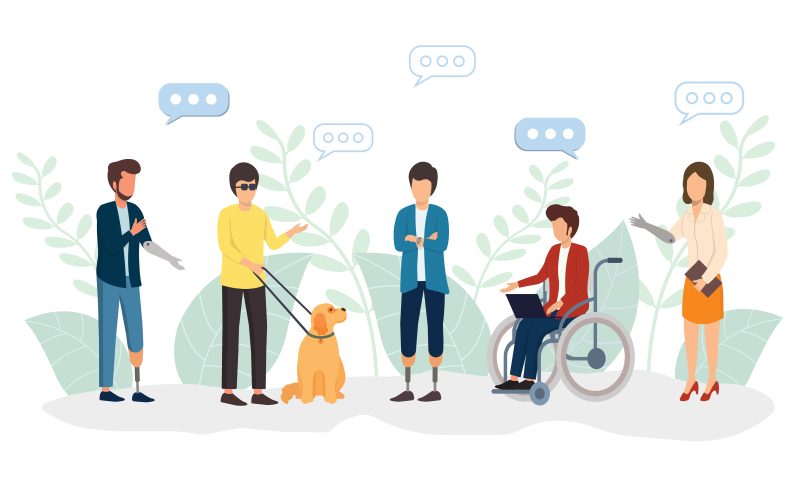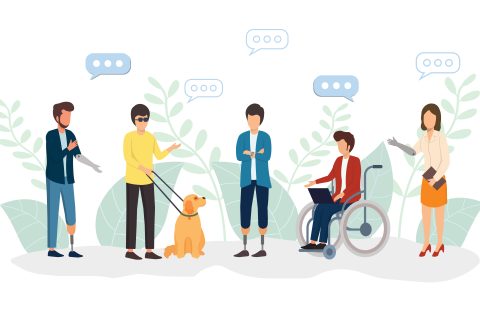New, adaptive technologies can be a tool for people with disabilities – but that doesn’t mean everyone wants them. Ashley Shew is an associate professor of science, technology, and society at Virginia Tech who specializes in disability studies and technology ethics. She joins host Krys Boyd to discuss why promises of a “better life” are discriminatory, and why the world needs to better adapt to the needs of the disabled, not the other way around. Her book is “Against Technoableism: Rethinking Who Needs Improvement.”
This episode originally aired October 10th, 2023.
Technology isn’t the “solution” for disability
By Shaunessy Renker, Think Intern
In a world where able-bodied people are the norm, those with disabilities are expected to invest in and rely on technologies that allow them to navigate an ableist environment. Not enough time and money is invested in creating environments more accessible for people with disabilities. They are also congratulated when they overcome their disability and successfully navigate day-to-day life despite their disability. The environment that we build for ourselves creates hindrances for those with disabilities that they have to then try overcoming using technology.
“Technoableism is one type of ableism which is sort of this deep-seeded bias against disabled ways of life and being, communicating, moving through the world,” says Ashley Shew [Against Technoableism: Rethinking Who Needs Improvement]. “It is the ways in which we talk about a lot of technologies around disability…every disability technology is praised as being life-changing.”
When new technologies and prosthetics are revealed to the world there is this sense of boosterism where the inventors are heralded as heroic figures. Our culture celebrates and is inspired by people who use technology to “fix” their disability. This further perpetuates the idea that the ultimate goal is to fix those with disabilities.
“If you are a disabled person just existing in the world—always being told you need something better, that you need to be better—is sort of this larger narrative that works to just stigmatize disability,” says Shew.
We need to draw our focus from stories about inventors helping disabled people and instead focus on creating an environment where they do not have to rely on those technologies in the first place. This will also fight back against the idea that disabled people need to be “fixed.”


